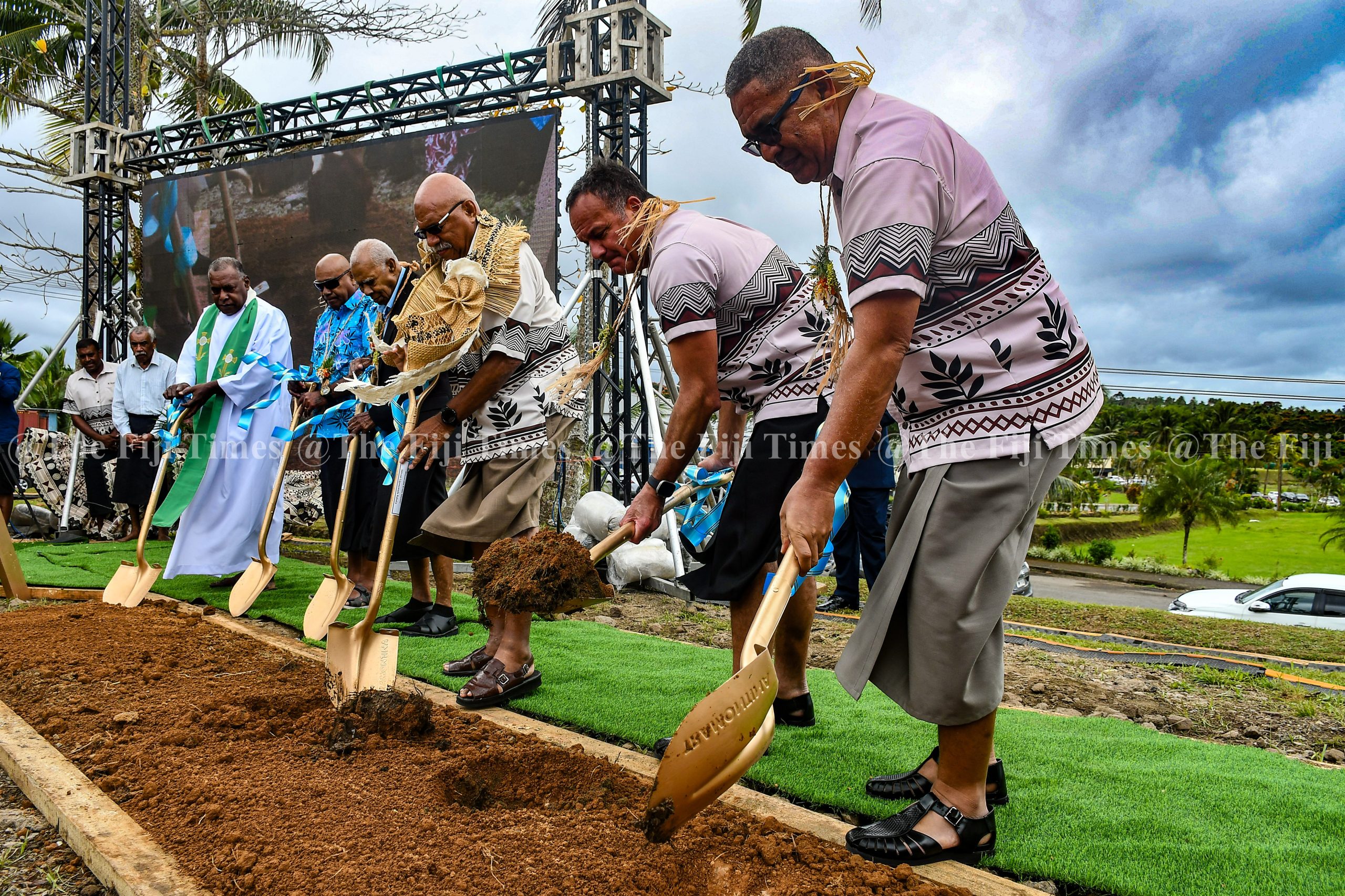The $500 million Koro Development Project is poised to become a catalyst for economic growth that will reshape Suva’s commercial landscape, generating up to 15,000 jobs, and establishing a premier, integrated hub to drive trade, investment and business connectivity across Fiji and the Pacific.
Officiating at yesterday’s groundbreaking, Prime Minister Sitiveni Rabuka described the Lyndhurst Group venture as “the beginning of a bold, new chapter” for Fiji — one that will “reshape our capital and redefine the scale of ambition possible in the Pacific.”
“Koro, a multi-purpose complex styled as a ‘village’, will stand as a beacon of transformation,” he said.
“A symbol of sustainability. And a proud marker of our national competitiveness on the global stage.
“Koro demonstrates that Fiji can lead with scale, sustainability, and strategic vision,” he added, acknowledging the “determination and generosity” of project lead Ratu Qativi Rob Cromb.
“When you tell people, ‘I want to build 30,000 square metres of commercial retail space,’ most will look at you like you’re crazy. If they don’t say it to your face, they’ll say it to everyone else,” Mr Cromb said.
The Lyndhurst founder, who started with a single fashion stall three decades ago, said the three-phase development would cover 140,000 square metres and take about eight years to complete, with the first phase expected in two years.
“In the first phase we expect about 6000 employees,” he said.
The complex will integrate retail, commercial offices, childcare, and medical facilities, with Mr Cromb emphasising its aim of “connecting people to customers and making business easier” while creating “opportunities for others to excel and achieve their ambitions.”
Mr Rabuka said the project aligned with the Fiji National Development Plan 2025-2029 and Vision 2050, describing it as “not a pipe dream” but a plan “built upon our inherent strengths and our potential to break boundaries and reach new growth frontiers.”
“Nobody had really been able to imagine 15,000 workers in one area of work,” he said.
“We have to dream big, without boundaries, so that future generations of leaders will continue this vision and make Fiji greater.”



